In Mickey 17, Robert Pattinson’s Mickey Barnes is cloned and recloned as a disposable human guinea pig, and though Bong Joon Ho’s latest isn’t an exact duplicate of his prior sci-fi work, it’s close enough in theme and tone to feel a bit stale.
Based on Edward Ashton’s 2022 novel Mickey7, the South Korean auteur’s follow-up to the Oscar-winning Parasite is something of a cross between his Snowpiercer and Okja, depicting a future human society that’s divided between the haves and have-nots, is rife with working-class exploitation, is dominated by cold, narcissistic elites, and is damnably callous toward its animal brethren.
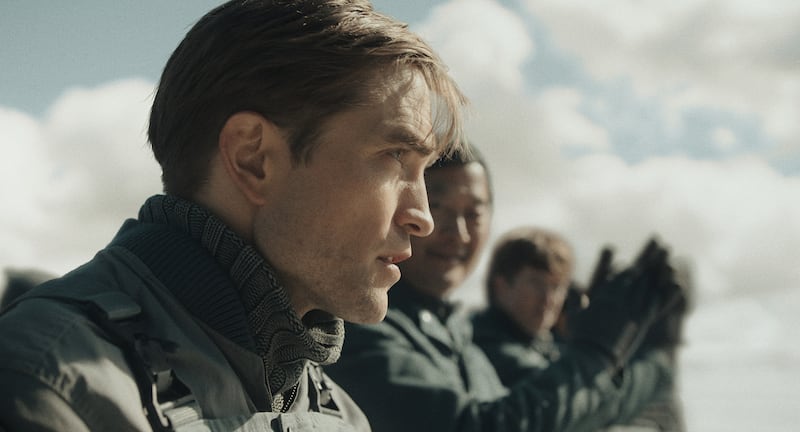
No matter a committed performance (two, actually) from Robert Pattinson, it’s an original that plays like a rehash—and an underwhelmingly unfunny one at that.
While it begins with the 17th iteration of Mickey landing in dire straits on the snowy alien world of Niflheim in 2054, Mickey 17 quickly rewinds to detail the young man’s backstory on Earth, where he and buddy Timo (Steven Yeun) find themselves in trouble courtesy of an unpaid debt to a ruthless loan shark.
Mickey and Timo have borrowed cash from this psychopath to launch an ill-fated macaron business—one of many details that are meant to be amusing but fall flat—and in order to avoid certain death, they hitch a ride on a colony ship into outer space spearheaded by Kenneth Marshall (Mark Ruffalo), a failed politician who’s gained a cultish following as a religious-political-corporate prophet. Desperate to escape the planet, Mickey makes a (literally) fatal mistake: He signs up to be an “expendable,” a job that requires him to have his mind and body copied so he can complete dangerous tasks and assess environmental, chemical, and organic hazards.
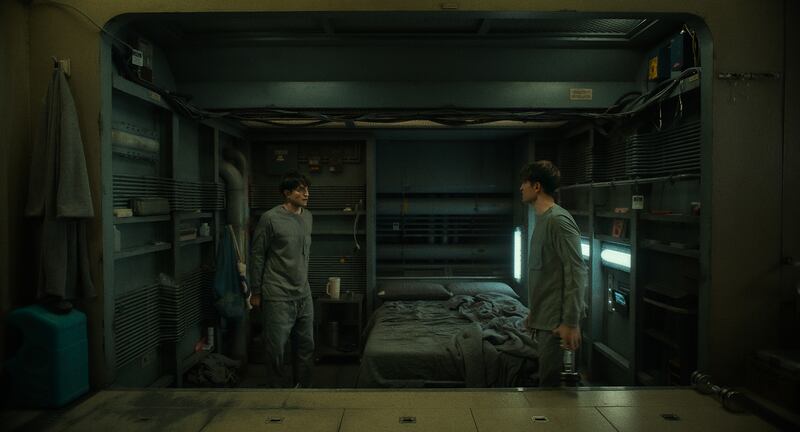
If—or rather, when—he dies, his body is replicated via a high-tech printer, and his memories are downloaded into his mind.
This process has been outlawed on Earth because one of its creators used it to manufacture clones of himself so he could operate as a serial killer. Nonetheless, it has perfect practical applications for interstellar exploration.
Mickey is subjected to intense solar radiation and atmospheric viruses to gauge levels of peril and to develop vaccines, and he’s equally well suited for checking out treacherous locales—as he does on Niflheim, where after falling into a ravine he’s overrun by a horde of centipede-esque extraterrestrial beasties that Kenneth later dubs “creepers.”
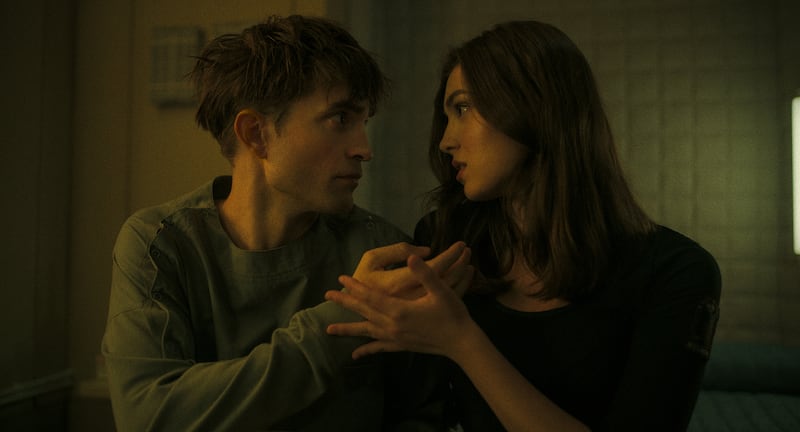
Surprisingly, Mickey survives this encounter, but when he returns to base to enjoy some rest and relaxation in his bed—and, additionally, to reunite with his loyal law enforcement officer girlfriend Nasha (Naomi Ackie)—he discovers that his quarters are now occupied by a familiar (if also new) face: himself, aka Mickey 18.
Since “multiples” are illegal and punished with permanent extinction, Mickey 17 isn’t thrilled with this situation. That’s not the reaction of Mickey 18, who’s brasher and angrier than his counterpart and determined to be the one true version of himself. After a scuffle, however, the two learn to uneasily coexist, including with Nasha, who entertains the idea of a unique threesome with her beau(s), and who bristles at colleague Kai (Anamaria Vartolomei) trying to woo Mickey 17.
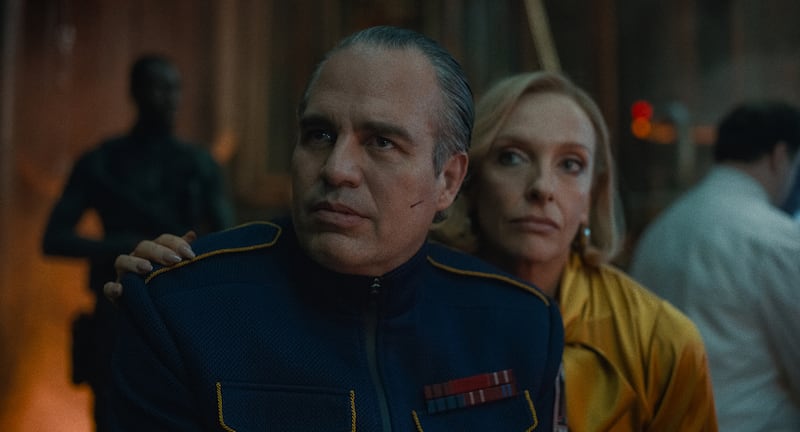
In these early passages, Bong stages a good deal of slapsticky tomfoolery involving Mickey 17 and 18, and despite his doubling effects’ eerie impressiveness, they rarely elicit laughs, no matter Pattinson’s gung-ho work as two sides of the same coin.
Bong pitches most of Mickey 17 as sci-fi comedy, but there’s little wit to his galactic Looney Tunes-ish lark; his script lacks punchy one-liners and, worse, it indulges in easy-target caricatures. Ruffalo’s Kenneth is a broadly conceived villain with shiny veneers who conceals his greed and cruelty behind a mask of religiosity, while his wife Yifa (Toni Collette) is a veritable Lady Macbeth with a bonkers infatuation with inventing delectable sauces.
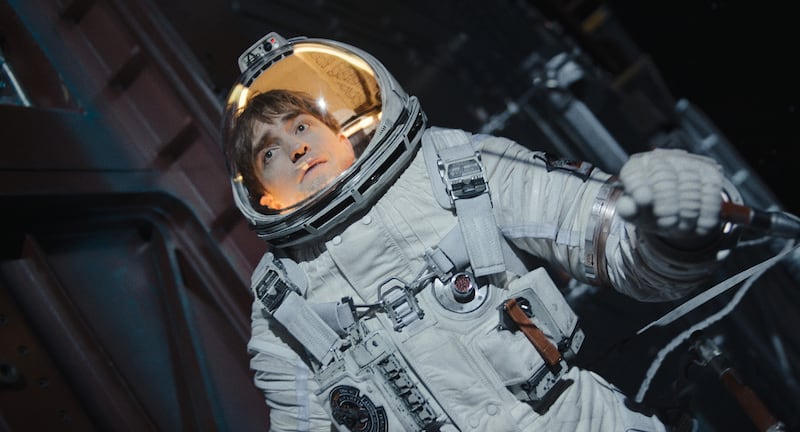
Both smile big and fume bigger, lashing out at underlings as often as they cheerily preach their gospel. They take the over-the-top route paved by Jake Gyllenhaal’s Okja turn, yet unlike that inspired tour-de-force, neither Ruffalo nor Collette is wild or unique enough to resonate as more than a conventional and strained symbol of capitalist iniquity.
Mickey 17 isn’t content to be merely a condemnation of inequity, profiteering and manipulation; it additionally aims to be a parable about colonialism, indigenous populations, and animal rights. In this respect as well, however, the film feels thin and old hat.
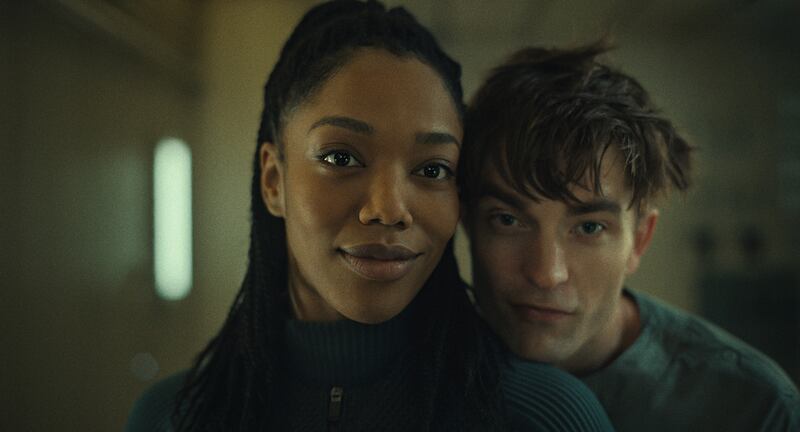
Nasha eventually screams at Marshall that they, instead of the creepers, are the actual aliens in this scenario, and the obviousness of that exclamation is in keeping with the leadenness of much of Bong’s social commentary. Though the director strives to make his sermonizing go down smoother with imaginative techno-concepts and goofy humor, the tactic doesn’t hold; his set pieces are generally busy without being lively, and his characters’ repartee is speedy without locating a genuinely witty rhythm.
Pattinson affects a nasally accent (think a slightly softer Steve Buscemi) and lurches, stumbles, shivers, and pratfalls with graceful dexterity. He’s a manic man of action, whether he’s the more taciturn and resigned Mickey 17 or the furious and rebellious Mickey 18. Still, his chemistry with Ackie is middling, and in the film’s later stages he’s reduced to a plot mechanism.
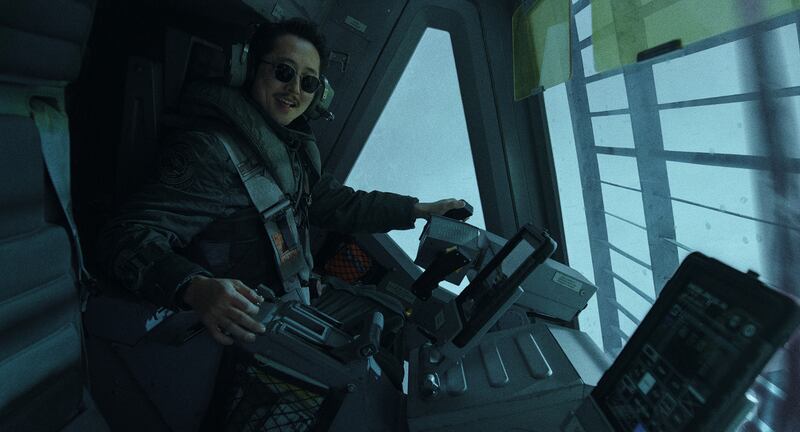
Of his cast members, Yeun fares best, once again exhibiting excellent comic timing as Mickey’s untrustworthy pal, and Collette does the most with a role that amounts to a single lame joke. Speaking of one-note, Bong repurposes Snowpiercer’s concept of food creation by revealing that Mickey’s clones are fashioned from waste byproducts, and then does nothing with that thematically loaded revelation. Instead, he ultimately focuses on lots of translator-enabled chitchat between Mickey and the mama creeper, which dislikes Kenneth killing one of its babies and threatening to do likewise with another captive infant.
Mickey 17 is, in some respects, a polished genre effort with many timely things on its mind. Yet given that Bong has already tilled this terrain (right down to the film’s dour color palette) and so many of its elements have been seen before (in everything from Moon and Oblivion to Alien, Starship Troopers, and Total Recall), it resonates as unambitious.
Pattinson’s enthusiasm be damned, it proves the director’s least exciting work to date, and—arriving two-plus years after its production wrapped—a disappointment that wasn’t worth the wait.









